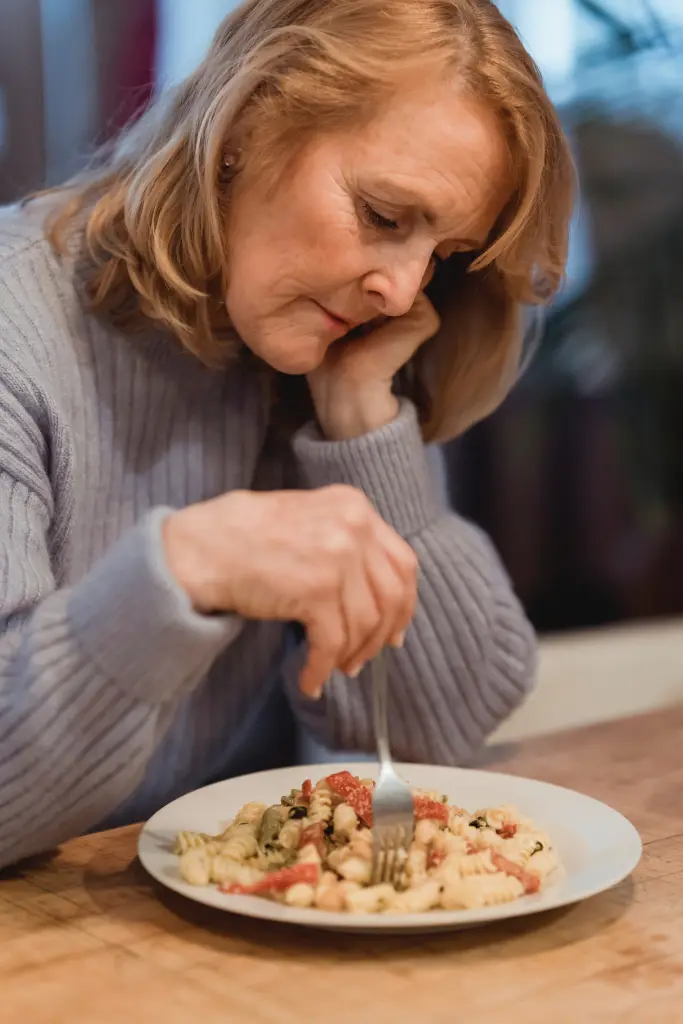Has your elderly loved one had a sudden decrease or lack of appetite? Are they having troubles chewing or swallowing? Or are they just not wanting to eat? Have you noticed a change in their weight or energy levels?
This doesn’t always mean something is wrong, it could be just a normal part of aging.
It is common for seniors to eat less as their metabolism slows and their nutritional needs change. It may be hard to cope with a sudden change in appetite as a loved one gets older, especially if they refuse to eat at all. You may be concerned about their unusual eating habits or that they are not getting the nourishment they require. It’s important to understand WHY they are experiencing a change in what they eat or how much they eat.

Here are 9 possible reasons your elderly loved one has changed their eating habits:
- Decrease or Loss of smell, taste and/or vision
Eating is an activity that engages all of your senses! In fact, your sense of smell affects your ability to taste and directly influences your appetite. A loss or decrease of any of these senses can make eating less enjoyable.
- Slowing of Metabolism and less Physical Activity
Due to this your senior needs less calories, meaning they will eat less food.
- Difficulty Chewing and/or Swallowing
This may be caused by dental problems, medical conditions, medications or normal age-related changes.
- Depression or Loneliness
Mealtime can be depressing for some elderly as they may not have anyone to enjoy a meal with which increases their feeling of loneliness.
- Lack of Routine (or changes to routine)
A lack of daily routine can cause confusion and discomfort around mealtimes.
- Inability to Prepare Meals
When living alone, preparing meals might have become too difficult, grasping kitchen utensils or using appliances may not be as easy as it once was.
- Loss of Control/Unpleasant Mealtimes
Being dependent on another person to prepare your meals may make your loved one feel a loss of control over what and when they eat. If disagreements happen due to this, it can cause a senior to associate food with unpleasantness.
- Medication Side Effects
Some medications have adverse side effects causing such things as dry mouth, dehydration and a metallic taste.
- Medical Conditions
Conditions such as stroke, dementia, MS, Parkinson’s, thyroid disorders, head and neck cancers and periodontal disease can cause loss of appetite.

This article is to help your understanding of why your elderly loved one has a decreased or lack of appetite. To learn about good foods to offer seniors with no appetite use this link Managing Loss of Appetite (Part 2): Foods for Elderly with No Appetite. If you’re in need of freshly prepared nutritious meals delivered to the home of your elderly loved one, please use this link to find out more about Surrey-North Delta Meals on Wheels and how we can help you www.sndmow.com

